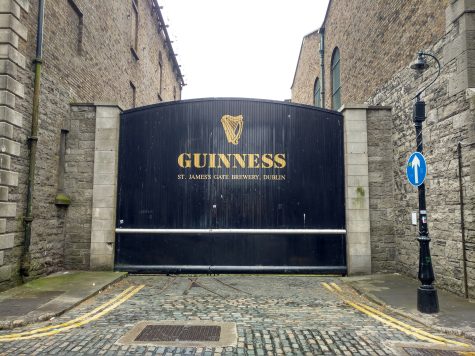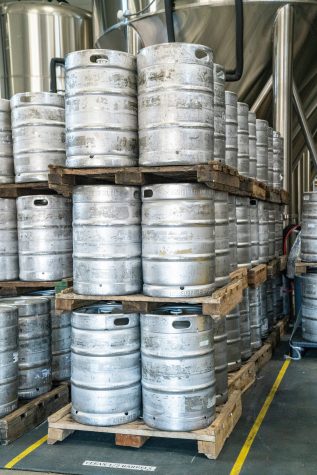Where is Guinness made?

As St. Patrick’s Day is coming up, let’s talk Guinness. When you think of Guinness, you likely picture it being poured in a cozy Irish pub. But have you ever wondered exactly where and how this famous drink is actually made? The story of Guinness is as rich as the drink itself, spanning centuries and continents.
The Birthplace: St. James’s Gate, Dublin
Guinness was founded in 1759 when Arthur Guinness signed a lease for a small, unused brewery at St. James’s Gate in Dublin, Ireland. This historic site remains the heart and soul of Guinness. The brewery started by producing a variety of ales and beers, but it was the introduction of porter in the 1770s that set Guinness on the path to global fame.
The St. James’s Gate Brewery is not just a production facility; it’s a symbol of Irish heritage and innovation. Today, it houses the Guinness Storehouse, a major tourist attraction where visitors can learn about the history of Guinness, see the brewing process, and enjoy a pint with a panoramic view of Dublin.
How is it made?

The process of making Guinness is a blend of tradition and modern technology. It starts with high-quality ingredients: water, barley, hops, and yeast.
1. Milling and Mashing: High-quality malted barley is milled and mixed with hot water to create a sweet liquid called wort.
2. Roasting: Some barley is roasted to give Guinness its dark colour and rich flavour.
3. Boiling: The wort is boiled with hops, adding bitterness and acting as a preservative.
4. Fermentation and Maturation: Yeast is added to the cooled wort, converting sugars into alcohol and carbon dioxide. The beer matures to develop complex flavours.
5. Filtration and Storage: The beer is filtered and stored in conditioning tanks to develop flavour and carbonation.
6. Nitrogenation: Nitrogen is used in draught Guinness to create its signature head and smooth texture.
7. Packaging: The beer is packaged in kegs, bottles, and cans, undergoing quality control to ensure it meets high standards.
Production & Packaging
This is where igus® come in! Brewery machinery often operates under pressure in challenging environments that require tough and reliable components. igus® parts are ideal for these conditions as they can endure extreme temperatures and high loads, operating entirely lubrication and maintenance-free.

What sort of parts do igus have in brewery machinery you might wonder? Here’s a few examples:
- Spherical bearings: Our igubal® range ensures the shaft runs freely with no grease or lubricants required. This keeps the machine clean and running smoothly.
- A market leader for small and medium-sized breweries installed a jackknife in their brewery plants. The jackknife cuts slits in the brewer grains and the entire mechanism must be resistant to extreme temperatures so iglidur® A500 bearings made of FDA-compliant material are used for smooth, uninterrupted movements.
Find out more about or products across the beverage industry.
Expansion Beyond Ireland
While Dublin is where it all began, the brand’s reach now extends far beyond Ireland. Guinness is brewed in nearly 50 countries around the world, making it a worldwide success. This international expansion began in the 19th century as Guinness started exporting its beer to us here in the UK and beyond.
Did you know? Each brewery across the world follows the same stringent brewing standards set by the original St. James’s Gate Brewery to ensure that the quality and taste of Guinness remains consistent no matter where it’s brewed.
A Global Icon

Guinness is more than just a beer; it’s a cultural icon. Its advertising campaigns, featuring the famous toucan and the slogan “Guinness is good for you,” are now part of popular culture.
While the original brewery remains a vital part of its identity, Guinness’s reach now spans continents, with breweries in Africa, Asia, and North America. No matter where it’s made, Guinness continues to be a symbol of quality and tradition tradition.
So, the next time you enjoy a pint of Guinness, you’ll know just how much hard work has gone into making each one. Sláinte!
While we’re on the topic…how much do you think it costs to make a pint of beer? Find out here.



